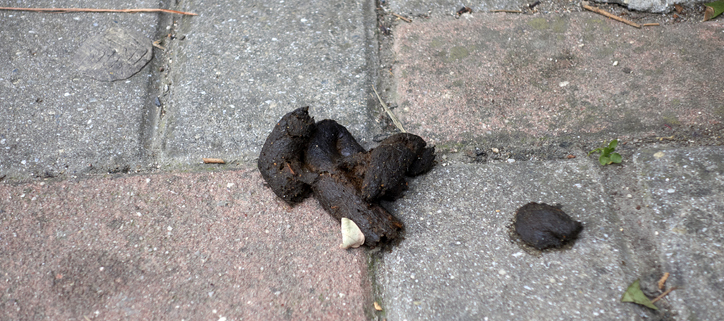DOGS EATING POOP
Dogs eating feces, also known as coprophagia, is a perplexing behavior that perplexes and concerns many dog owners. This habit, though unsavory to humans, is relatively common among dogs and can stem from various reasons, both behavioral and physiological.
One explanation for coprophagia is rooted in a dog’s evolutionary history. Wild canines, such as wolves, would often eat feces as a means of keeping their dens clean and preventing the spread of parasites. This instinct might persist in domesticated dogs, leading them to consume feces out of an inherent drive for cleanliness or as a means of investigating their surroundings.
Additionally, nutritional deficiencies or inadequate diets can prompt coprophagia. If a dog’s diet lacks essential nutrients like vitamins, minerals, or enzymes, they may try to compensate by seeking these nutrients in feces. Insufficient absorption of nutrients due to digestive issues can also contribute to this behavior, leading dogs to consume their feces in an attempt to gain back some of the nutrients lost in their waste.
Moreover, behavioral factors such as stress, anxiety, boredom, or attention-seeking behavior can also trigger coprophagia. Dogs left alone for extended periods or those lacking mental stimulation might engage in this behavior as a way to garner attention or relieve their boredom. Anxiety or stress could also drive a dog to exhibit coprophagia as a coping mechanism.
Addressing coprophagia involves a multifaceted approach. First and foremost, a visit to the veterinarian is crucial to rule out any underlying health issues or nutritional deficiencies. Ensuring that the dog is on a balanced and nutritious diet appropriate for its age and health status is essential.
Behavioral modification techniques should also be employed. This includes consistent training and redirection methods to discourage the behavior and positively reinforce more appropriate activities. Keeping the environment clean and promptly removing feces can limit a dog’s access to it, reducing the opportunity for coprophagia.
Additionally, providing mental stimulation through interactive toys, regular exercise, and spending quality time with the dog can help alleviate boredom or anxiety that might contribute to this behavior.
It’s important to note that breaking the habit of coprophagia may take time and patience. Punishment is not recommended as it can lead to increased stress and confusion for the dog. Positive reinforcement of desired behaviors, coupled with a well-balanced diet and a supportive environment, is key to curbing this behavior.
In conclusion, while dogs eating feces may be a disconcerting behavior for owners, it’s important to approach it with understanding and patience. By addressing potential underlying causes, providing a balanced diet, and employing positive training methods, owners can help their dogs overcome coprophagia and lead healthier, happier lives. Consulting with a veterinarian or a professional dog trainer may offer valuable guidance in managing and addressing this behavior.



